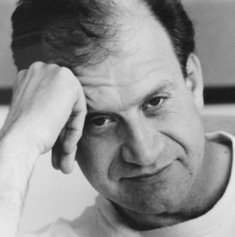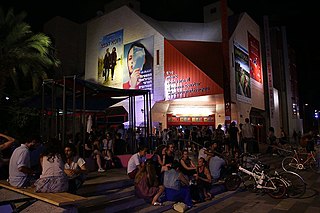
Dubbing is a post-production process used in filmmaking and video production, often in concert with sound design, in which additional or supplementary recordings (doubles) are lip-synced and "mixed" with original production sound to create the finished soundtrack.

The film industry in Germany can be traced back to the late 19th century. German cinema made major technical and artistic contributions to early film, broadcasting and television technology. Babelsberg became a household synonym for the early 20th century film industry in Europe, similar to Hollywood later. Early German and German-speaking filmmakers and actors heavily contributed to early Hollywood.

The United Kingdom has had a significant film industry for over a century. While film production reached an all-time high in 1936, the "golden age" of British cinema is usually thought to have occurred in the 1940s, during which the directors David Lean, Michael Powell, and Carol Reed produced their most critically acclaimed works. Many British actors have accrued critical success and worldwide recognition, such as Audrey Hepburn, Olivia de Havilland, Vivien Leigh, Glynis Johns, Maggie Smith, Laurence Olivier, Michael Caine, Sean Connery, Ian Mckellen, Joan Collins, Judi Dench, Julie Andrews, Daniel Day-Lewis, Gary Oldman, Emma Thompson, Anthony Hopkins and Kate Winslet. Some of the films with the largest ever box office returns have been made in the United Kingdom, including the fourth and fifth highest-grossing film franchises.

The National Film and Television School (NFTS) is a film, television and games school established in 1971 and based at Beaconsfield Studios in Beaconsfield, Buckinghamshire, England. It is featured in the 2021 ranking by The Hollywood Reporter of the top 15 international film schools.

Film4 is a British free-to-air public broadcast television channel owned by Channel Four Television Corporation launched on 1 November 1998, devoted to broadcasting films. While its standard-definition channel is available on Freeview and Freesat platforms, its high-definition variant is offered only as a pay television service.
The film industry or motion picture industry comprises the technological and commercial institutions of filmmaking, i.e., film production companies, film studios, cinematography, animation, film production, screenwriting, pre-production, post-production, film festivals, distribution, and actors. Though the expense involved in making films almost immediately led film production to concentrate under the auspices of standing production companies, advances in affordable filmmaking equipment, as well as an expansion of opportunities to acquire investment capital from outside the film industry itself, have allowed independent film production to evolve.

The cinema of Nigeria, often referred to informally as Nollywood, consists of films produced in Nigeria; its history dates back to as early as the late 19th century and into the colonial era in the early 20th century. The history and development of the Nigerian motion picture industry is sometimes generally classified in four main eras: the Colonial era, Golden Age era, Video film era and the emerging New Nigerian cinema era.
The UK Film Council (UKFC) was a non-departmental public body set up in 2000 to develop and promote the film industry in the UK. It was constituted as a private company limited by guarantee, owned by the Secretary of State for Culture, Media and Sport, and governed by a board of 15 directors. It was funded from various sources including The National Lottery. John Woodward was the Chief Executive Officer of the UKFC.

The International Documentary Film Festival Amsterdam (IDFA) is the world's largest documentary film festival held annually since 1988 in Amsterdam, Netherlands.

Renen Schorr is a film director, screenwriter, film producer and Israeli film activist. In 1989, he founded Israel's first independent, national school for film and television, the Sam Spiegel Film and Television School – Jerusalem, and has served as its director since that time. During the last 40 years he founded or co-founded the infrastructure of Israeli film funds and cinematheques. In December 2016 he was awarded the Chevalier des arts et lettres by the French government.
Middle Eastern cinema collectively refers to the film industries of West Asia and part of North Africa. By definition, it encompasses the film industries of Egypt, Iran, Bahrain, Iraq, Israel, Jordan, Kuwait, Lebanon, Palestine, Oman, Qatar, Saudi Arabia, Syria, United Arab Emirates, and Yemen. As such, the film industries of these countries are also part of the cinema of Asia, or in the case of Egypt, Africa.

The cinema of Wales comprises the art of film and creative movies made in Wales or by Welsh filmmakers either locally or abroad. Welsh cinema began in the late-19th century, led by Welsh-based director William Haggar. Wales continued to produce film of varying quality throughout the 20th century, in both the Welsh and English languages, though indigenous production was curtailed through a lack of infrastructure and finance, which prevented the growth of the industry nationally. Despite this, Wales has been represented in all fields of the film making process, producing actors and directors of note.

Cinema of Israel refers to film production in Israel since its founding in 1948. Most Israeli films are produced in Hebrew, but there are productions in other languages such as Arabic and English. Israel has been nominated for more Academy Awards for Best Foreign Language Film than any other country in the Middle East.
Arab cinema or Arabic cinema refers to the film industry of the Arab world. Most productions are from the Egyptian cinema.
United Kingdom animation began at the very origins of the artform in the late 19th century. British animation has been strengthened by an influx of émigrés to the UK; renowned animators such as Lotte Reiniger (Germany), John Halas (Hungary), George Dunning and Richard Williams (Canada), Terry Gilliam and Tim Burton have all worked in the UK at various stages of their careers. Notable full-length animated features to be produced in the UK include Animal Farm (1954), Yellow Submarine (1968), Watership Down (1978), and Wallace & Gromit: The Curse of the Were-Rabbit (2005).

Home video is recorded media sold or rented for home viewing. The term originates from the VHS and Betamax era, when the predominant medium was videotapes, but has carried over to optical disc formats such as DVD and Blu-ray. In a different usage, "home video" refers to amateur video recordings, also known as home movies.

The Tel Aviv International Student Film Festival is the largest of its kind in the world and is considered one of the most important in its field. The film festival hosts hundreds of students, lecturers and guests of honor from the world's leading film industry in Tel Aviv, for a week of screenings and cultural events. Hundreds of films, premieres, cinematic events, workshops, conferences and special projects are held, inviting thousands of visitors to the Tel Aviv Cinematheque halls every day. Since 2013, it has been held once a year, in June, in Tel Aviv.
The cinema of Angola currently suffers from financial issues around the funding of new films. In the early 2000s, the Angolan government helped fund a small number of films, however this programme stopped towards the end of the decade. During this time the film The Hero was filmed in Angola and won the World Dramatic Cinema Jury Grand Prize at the 2005 Sundance Film Festival. The first cinemas in Angola were built in the 1930s, with a total of 50 being built by the middle of the 1970s. Many are now in a state of disrepair, but there is an effort to restore some of them.

Sam Klebanov is a Russian and Swedish film industry executive, film distributor, producer and TV host. In film business since 1996. In the early 2000s his company Cinema without Borders was the leading force of arthouse film distribution in Russia, in 2015 he also co-founded a Mosow-based distribution outfit Arthouse. Between 2001 and 2008, he was the author and host of the weekly show Magic of Cinema on the national TV channel Russia-K.

The cinema of Costa Rica comprises the art of film and creative movies made within the nation of Costa Rica or by Costa Rican filmmakers abroad.













